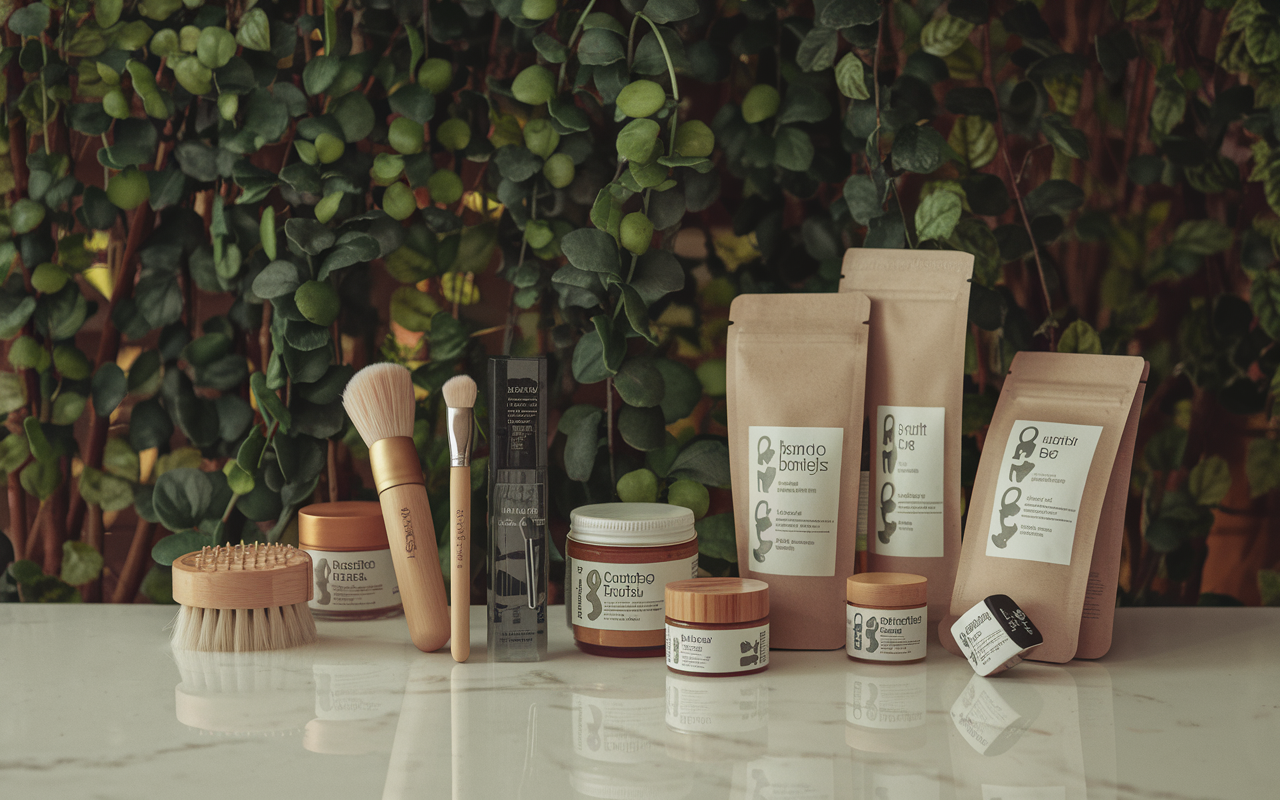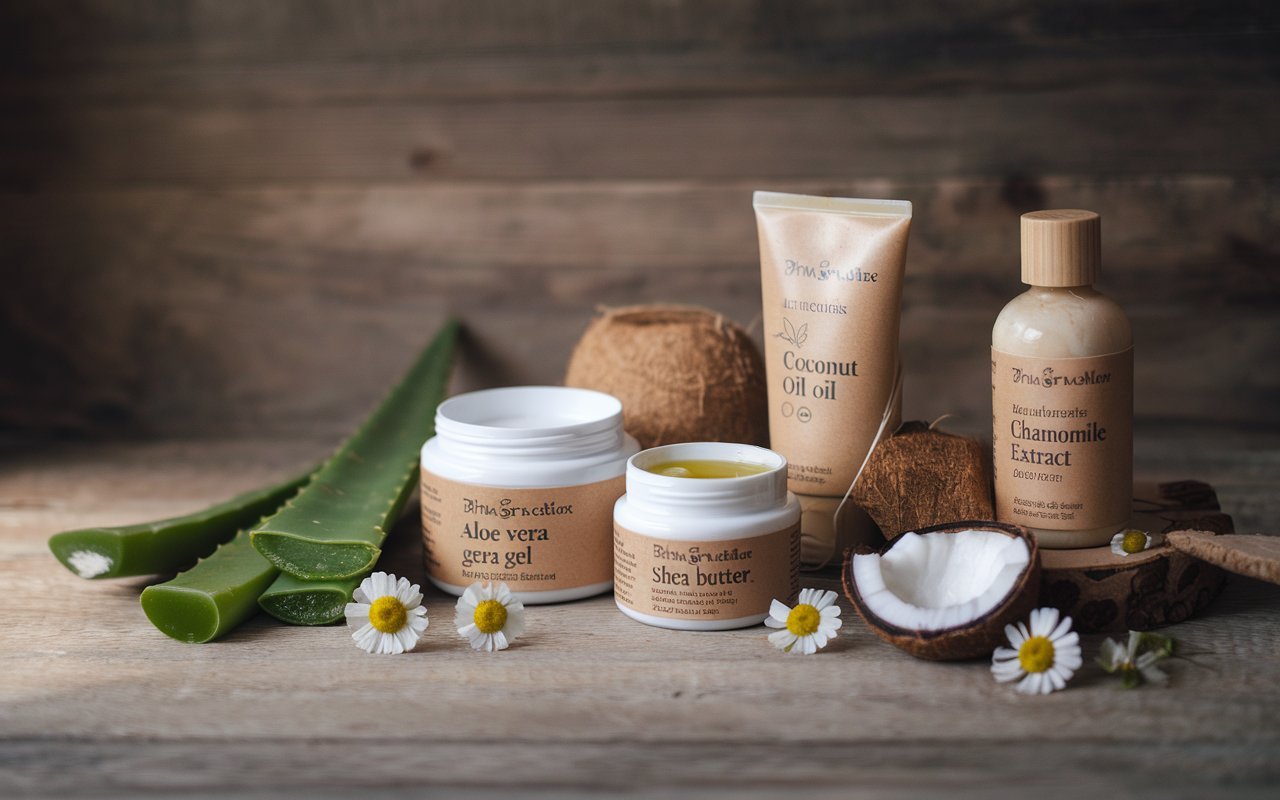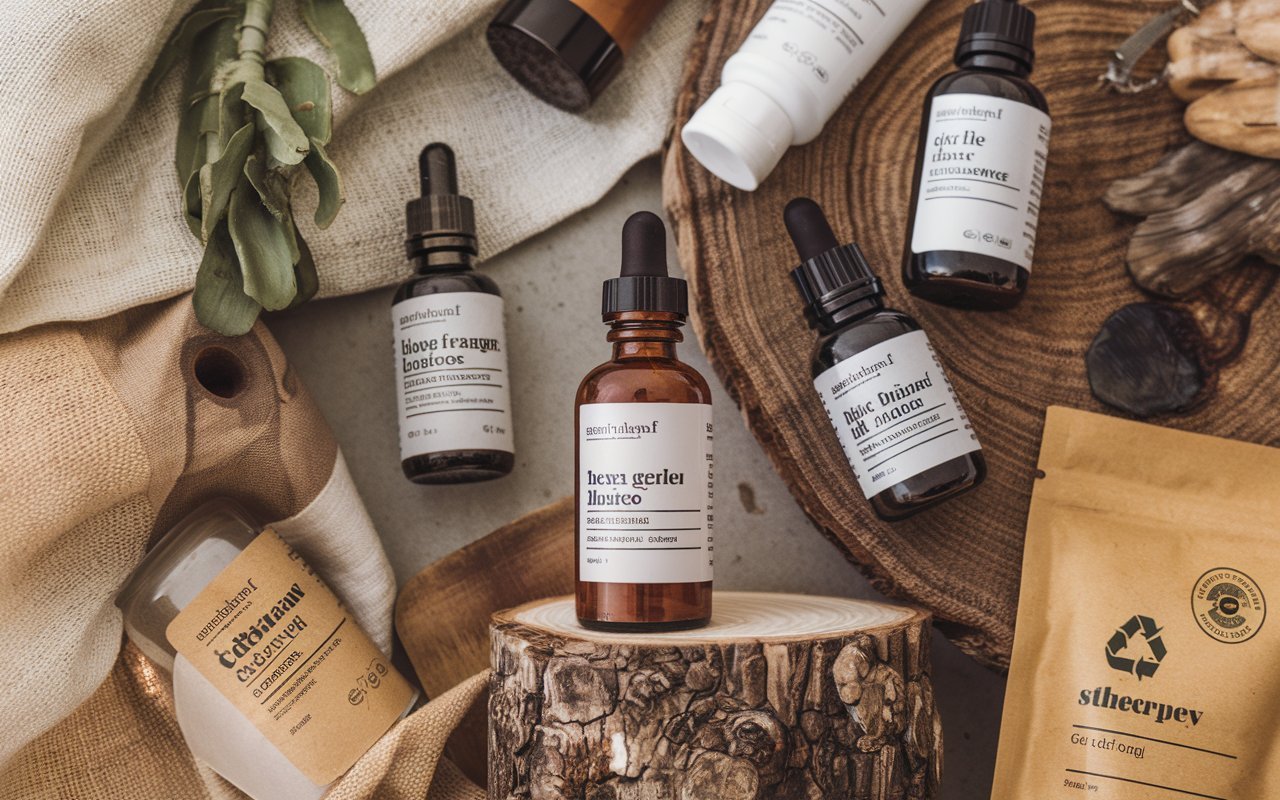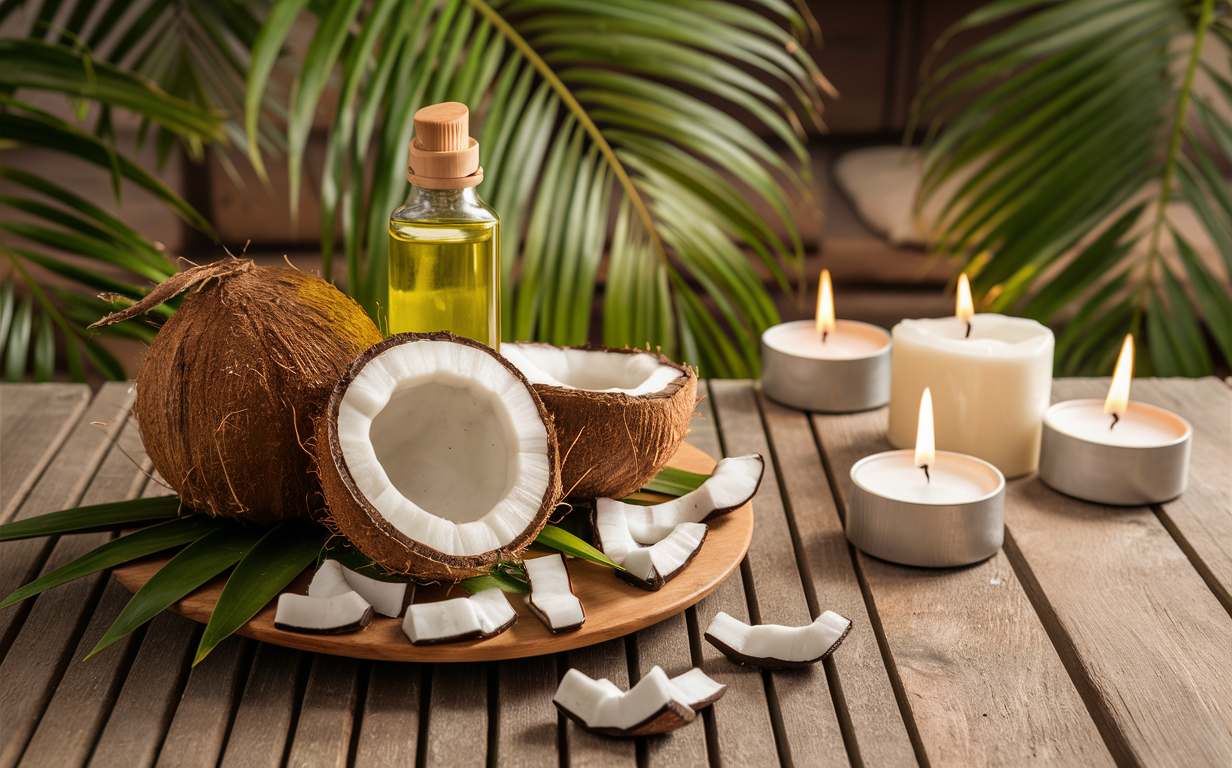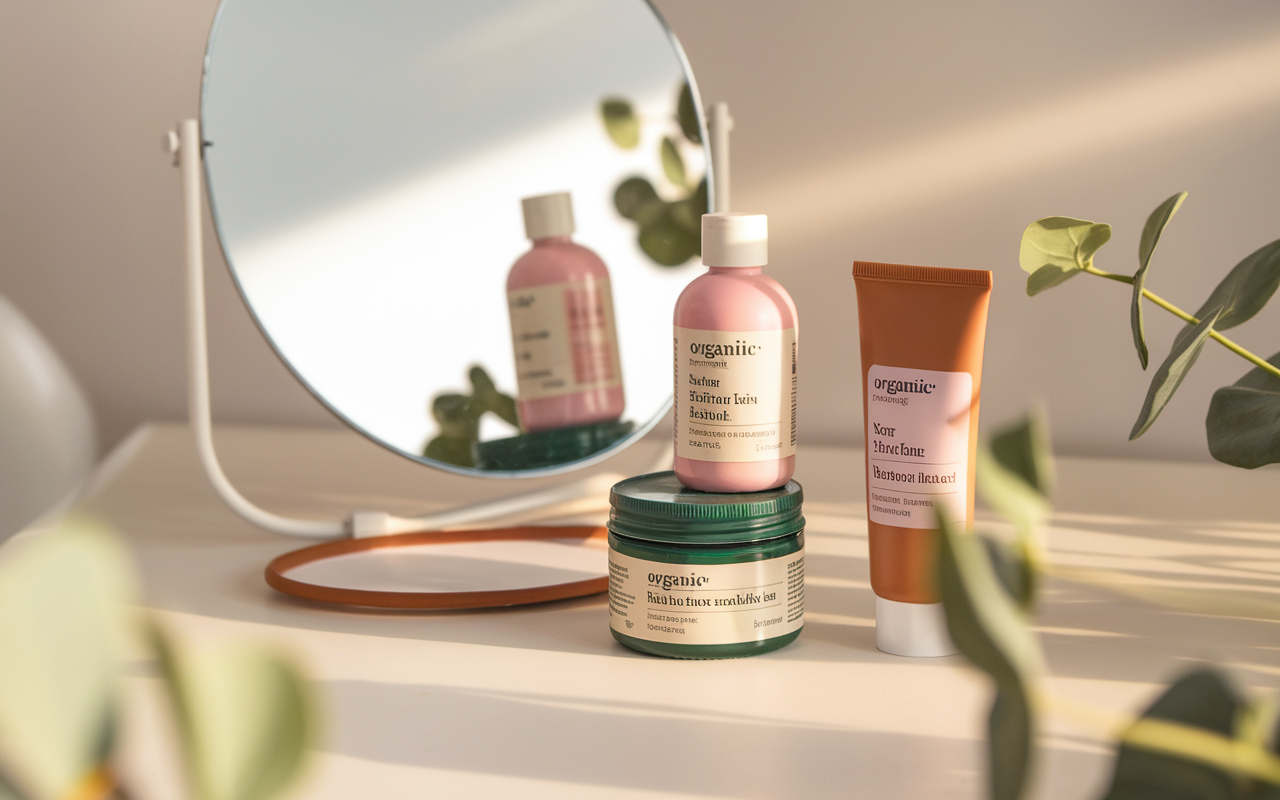
Introduction
Making the switch to organic skin care is a beautiful, transformative journey for both your skin and soul. But for many, it can feel daunting—especially when prices for organic products seem to soar. Fortunately, it’s entirely possible to transition to an organic skin care routine without emptying your wallet. This guide will show you how to embrace an organic, mindful approach to skin care that fits your budget, one thoughtful step at a time.
Why Choose Organic Skin Care?
Switching to organic skin care isn’t just about a trend; it’s about making an intentional decision to care for your body and the planet. Organic skin care products use natural ingredients grown without synthetic pesticides or chemicals, which means they’re less likely to cause irritation and are often more nourishing. Additionally, organic farming methods promote environmental health, meaning every purchase supports sustainability.
Imagine nourishing your skin with pure botanicals, free from toxins, and sourced responsibly—this is the essence of organic skin care.
Why Organic Skin Care is More Than a Trend
Organic skin care represents a deeper, more mindful approach to beauty and health. It’s about connecting with nature in a way that feels authentic and nourishing. Using organic products means fewer synthetic chemicals and more plant-based, nutrient-dense ingredients that work in harmony with your skin rather than against it. This isn’t just another beauty trend; it’s a movement towards healthier, more sustainable practices.
Understanding Organic Skin Care and Why It Matters
What Defines Organic Skin Care?
Organic skin care products are formulated from ingredients grown without synthetic pesticides, fertilizers, or genetically modified organisms (GMOs). These products steer clear of parabens, sulfates, and other chemicals, instead focusing on plant-based ingredients rich in vitamins, antioxidants, and essential oils. When you choose organic skin care, you’re opting for products closer to their natural state, which can be gentler on the skin and better for overall health.
The Long-Term Health Benefits of Organic Skin Care
Choosing organic skin care isn’t just about short-term benefits; it’s an investment in long-term skin health. Organic products, often enriched with naturally occurring nutrients, can rejuvenate, repair, and restore the skin’s natural balance over time. From reducing inflammation to enhancing elasticity, organic ingredients promote overall wellness and radiance without the long-term risks associated with synthetic additives.
Why Organic Skin Care is Often Viewed as Expensive
The Perceived High Cost of Organic Ingredients
Organic ingredients are sourced with care and often come from smaller, sustainable farms that avoid harmful chemicals. This labor of love can sometimes come with a higher price tag, but it’s worth understanding that the cost reflects quality, ethical sourcing, and environmental responsibility.
How Premium Sourcing Influences Price
Quality organic skin care often relies on premium ingredients that come directly from nature, such as cold-pressed oils and plant-based extracts. These materials tend to cost more than synthetic fillers, which is why some organic products appear pricier. However, there are plenty of brands and methods that allow you to access high-quality organic products without the high price.
Budget-Friendly Ways to Switch to Organic Skin Care
Transitioning to organic skin care doesn’t mean you have to buy a whole new set of products all at once. Let’s explore some wallet-friendly strategies that allow you to slowly and sustainably incorporate organic options into your routine.
Assess Your Current Routine and Identify Essentials
Take a close look at your current routine. Identify which products are essential to your skin’s health and which are extras. Essentials might include a cleanser, moisturizer, and sunscreen. Start by replacing one essential at a time with an organic version.
Set a Realistic Budget
Commit to an amount you’re comfortable with each month or quarter for organic skin care. For instance, you could allocate $20–$30 for a new product each month, so your investment is gradual and doesn’t feel overwhelming.
Hunt for Discounts and Sales
Brands often run discounts during holidays or offer first-time customer deals. Subscribe to newsletters of trusted organic skin care brands to get notified about these sales.
Choose Multi-Use Products
Look for organic products that serve multiple purposes, like an all-natural balm that works as a moisturizer, lip balm, and cuticle care. Multipurpose products can stretch your dollar further and simplify your routine.
How to Prioritize Key Products
When switching to organic skin care, you don’t have to replace every product right away. Focus on high-impact products first—the ones that spend the most time on your skin or cover large areas.
Prioritize Your Cleanser
A cleanser is crucial because it’s the foundation of any skin care routine. Organic cleansers can nourish your skin while removing impurities without stripping it of natural oils.
Invest in a Good Moisturizer
Organic moisturizers with ingredients like aloe vera, shea butter, or jojoba oil can hydrate your skin effectively. Moisturizers that use fewer preservatives are closer to their natural state, offering a pure experience for your skin.
Consider an Organic Sunscreen
Sunscreen is necessary to protect your skin from harmful UV radiation. Organic sunscreens typically use mineral-based filters like zinc oxide, which provide a safer, non-toxic alternative to chemical sunscreens.
Understanding Labels and Certifications
Not every product labeled “natural” or “organic” truly fits the bill. Understanding certifications can prevent you from being misled by marketing terms.
Key Certifications to Look For
- USDA Organic: Ensures the product contains at least 95% organic ingredients.
- Ecocert: An internationally recognized certification for organic standards.
- Non-GMO Project Verified: Indicates the product is free from genetically modified ingredients.
These certifications ensure that your product is truly organic and meets specific standards for quality and purity.
Making Organic Skin Care Affordable: Your Step-by-Step Guide
Start Small with Core Essentials
Transitioning to organic skin care doesn’t mean replacing everything at once. Start by identifying the essentials—cleanser, moisturizer, and perhaps a serum. Focusing on these core products allows you to make a meaningful impact without overwhelming your budget.
Choose Multi-Use Organic Products
Look for products that serve multiple functions, like a hydrating oil that works as both a facial moisturizer and hair treatment. Multi-purpose products help you cut down on the number of items you need while ensuring your skin is still getting ample care.
Learn to Interpret Ingredient Labels
Being able to recognize ingredients in your products is key to making informed choices. Ingredients are typically listed in descending order of concentration, so prioritize products where organic ingredients are at the top. This way, you know you’re paying for quality, not fillers.
Exploring Affordable Organic Skin Care Options
Budget-Friendly Organic Brands to Try
There are numerous brands dedicated to affordable, high-quality organic skin care. Burt’s Bees, Acure, The Ordinary, and Yes To offer affordable, clean ingredients and are accessible in many stores and online. These brands prioritize purity and efficacy, allowing you to access organic skin care without overspending.
How Kitchen Staples Can Serve as Organic Skin Care
Some of the best organic skin care options are already in your kitchen. Coconut oil works wonders as a moisturizer, honey has antibacterial properties ideal for acne-prone skin, and oatmeal can be a gentle exfoliant for sensitive skin. Exploring natural, whole foods can give your skin the organic nourishment it craves at minimal cost.
Affordable Organic Skin Care Ingredients
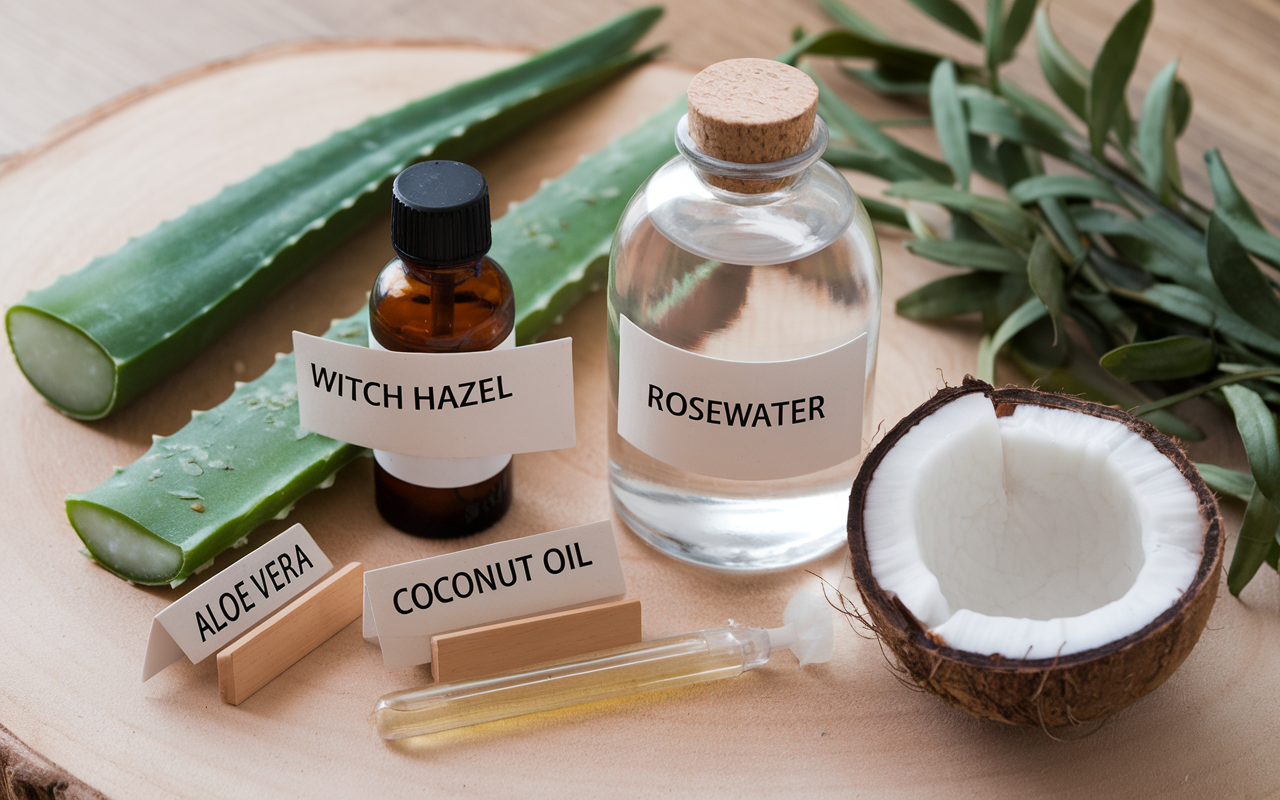
Sometimes, simpler is better. Organic skin care doesn’t have to mean expensive blends or complicated formulas. Often, single-ingredient products can provide fantastic benefits.
- Rosewater
An affordable toner with soothing and hydrating properties, rosewater is gentle enough for all skin types.
- Aloe Vera Gel
Aloe vera gel is soothing, hydrating, and a great option for sensitive skin. You can even grow your own aloe vera plant for a virtually endless supply.
- Coconut Oil
Coconut oil is a fantastic moisturizer, makeup remover, and can even be used as a natural hair treatment. It is a cost-effective option because a small amount goes a long way.
- Witch Hazel
This plant-based extract is great for oily or acne-prone skin, acting as a natural astringent. Look for alcohol-free, organic options for a gentler approach.
DIY Organic Skin Care Options
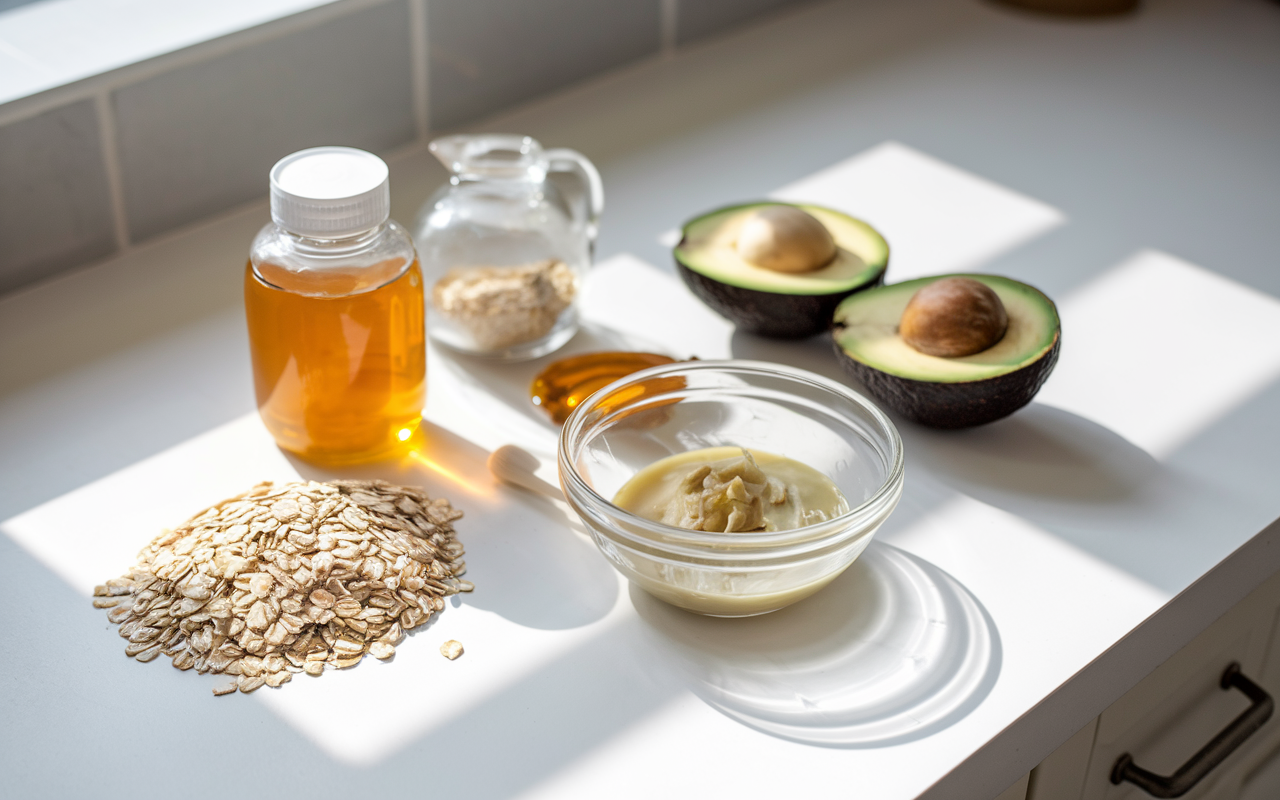
If you’re eager to embrace organic skin care on a tight budget, DIY options can be incredibly rewarding and cost-effective.
- Honey and Oatmeal Face Mask
Mix organic honey with oatmeal for a soothing, exfoliating mask that softens and rejuvenates skin.
- Sugar and Coconut Oil Scrub
Create your own body scrub with organic sugar and coconut oil for a moisturizing exfoliant that leaves skin silky smooth.
- Avocado and Yogurt Mask
This hydrating mask is rich in healthy fats and probiotics, offering an organic treatment that’s as good for your skin as it is for your wallet.
- Green Tea Toner
Steep organic green tea, let it cool, and use it as a refreshing, antioxidant-rich toner.
Benefits of DIY Organic Skin Care for Saving Money
Easy DIY Recipes for Budget-Friendly Skin Care
Creating your own skin care treatments is a powerful way to reduce costs while keeping things organic. For example, a simple honey and cinnamon mask can help with acne, while a blend of aloe vera and coconut oil soothes and hydrates. With just a few ingredients, you can craft treatments that are fresh, effective, and safe.
Cost and Health Benefits of Homemade Products
DIY organic skin care products eliminate the need for preservatives, ensuring a cleaner product for your skin. Additionally, homemade products are highly customizable, allowing you to adjust the formula to suit your skin’s unique needs without the worry of harsh chemicals or high costs.
Practical Tips to Sustain an Affordable Organic Skin Care Routine
Buying in Bulk and Taking Advantage of Deals
When you find an organic product that works for you, consider buying in bulk during sales or special promotions. Organic skin care often has a longer shelf life when stored correctly, so buying in larger quantities can save money over time.
Importance of Proper Storage for Organic Products
Organic skin care products can be more sensitive to temperature and light exposure. Store items in a cool, dark place, and keep lids tightly closed to maintain freshness. Proper storage ensures your products remain effective, giving you the most value for your investment.
Transitioning Slowly to Organic Skin Care for Best Results
How Your Skin Adapts to Organic Ingredients
Switching to organic skin care is a gradual process. Your skin may go through an adjustment period as it sheds the effects of synthetic ingredients. This detox phase can sometimes lead to temporary breakouts or dryness, but with patience, your skin will reveal a fresher, more radiant layer.
The Importance of a Gradual Transition
Introduce one organic product at a time to observe how your skin reacts. A slow transition prevents irritation and allows you to build a routine with products that genuinely suit your skin’s needs.
Common Pitfalls to Avoid in Organic Skin Care on a Budget
Avoiding the “Natural” Trap
Not every product labeled “natural” is truly organic. Look certifications such as COSMOS, Ecocert, or USDA Organic. These labels ensure the product meets strict organic standards, so you know you’re getting what you pay for.
Being Careful with Overhauling Your Routine Too Quickly
Switching to organic skin care doesn’t have to be an all-or-nothing approach. Moving too quickly from a conventional routine can shock your skin, leading to irritation or imbalance. Remember, transitioning to organic skin care is like nurturing a relationship—you take it slow, savor each step, and allow your skin to adapt to the new care it’s receiving.
Repurposing Kitchen Ingredients for Skin Care
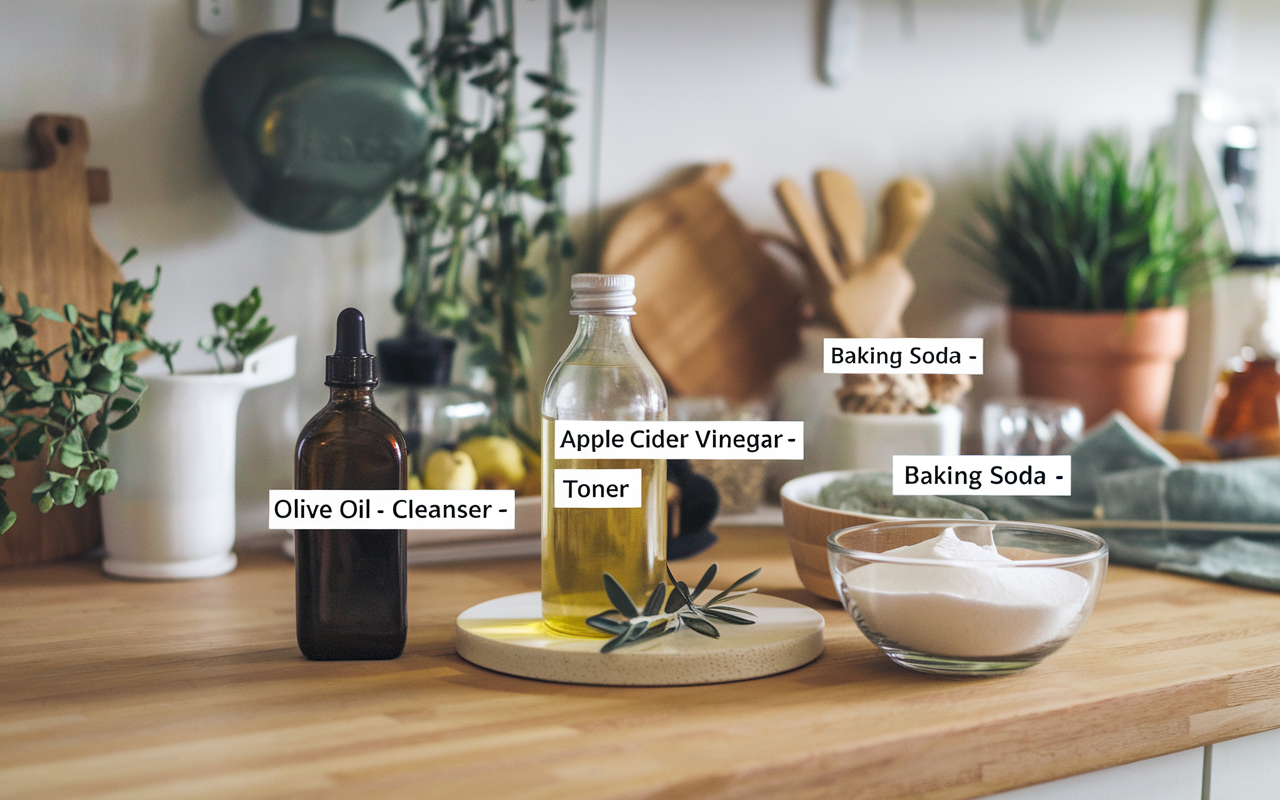
Your kitchen can be a treasure trove of organic skin care ingredients. Many everyday items can be used in your routine without a hefty price tag.
Olive Oil
Great for dry skin, olive oil makes a nourishing moisturizer or makeup remover. It’s also packed with antioxidants that help keep skin youthful.
Baking Soda
Baking soda can be a gentle exfoliant when mixed with water or honey. It can be harsh on sensitive skin, so use it carefully.
Apple Cider Vinegar
Diluted apple cider vinegar can serve as a natural toner, helping balance the skin’s pH. To prevent irritation, just make sure to dilute it with water.
Embracing Organic Skin Care as a Lifestyle, Not Just a Trend
Organic skin care isn’t just about the products you use; it’s about honoring your skin, your health, and the planet. When you choose organic, you’re making a commitment to yourself and to a healthier, more sustainable world. This lifestyle shift can ripple into other areas of your life, inspiring you to choose eco-friendly habits, eat healthier, and prioritize self-care in ways you hadn’t before.
Conclusion
Switching to organic skin care without overspending is possible when you take it one thoughtful step at a time. With a few strategic swaps, a little creativity, and a mindful approach, you can enjoy all the benefits of organic products without breaking the bank. You’re not just treating your skin well; you’re making a stand for the environment, supporting ethical sourcing, and choosing what feels right for your body and mind. So take a deep breath, dive into this beautiful journey, and give yourself the gift of organic skin care without the guilt of overspending.
FAQs
Q: How can I be sure my organic skin care product is genuine?
A: Look for certified labels like USDA Organic or Ecocert, which guarantee that the product meets rigorous organic standards. Also, check the ingredient list for recognizable, plant-based ingredients rather than synthetic chemicals.
Q: Is organic skin care really better for sensitive skin?
A: Yes, organic products are generally free from harsh chemicals, synthetic fragrances, and fillers that can irritate sensitive skin. They offer a gentler, more natural option, although it’s still important to patch test new products to ensure compatibility.
Q: Do organic skin care products last as long as conventional ones?
A: Because organic products don’t include artificial preservatives, they could have a shorter shelf life. However, storing them in a cool, dark place can help maintain their freshness and effectiveness.
Q: What ingredients should I avoid even in “natural” products?
A: Even in “natural” or “organic” products, avoid ingredients like synthetic fragrances, parabens, sulfates, and phthalates. These can be irritating and may have adverse health effects.
Q: How soon can I expect results after switching to organic skin care?
A: Results may vary, but most people notice positive changes within a few weeks. Organic skin care works at a deeper level, so while it might take a little longer to see results, the benefits are often longer-lasting and more harmonious with your skin’s natural rhythm.
Also Visit:
Inspiring DIY Organic Skin Care Recipes You Can Make at Home 2024
